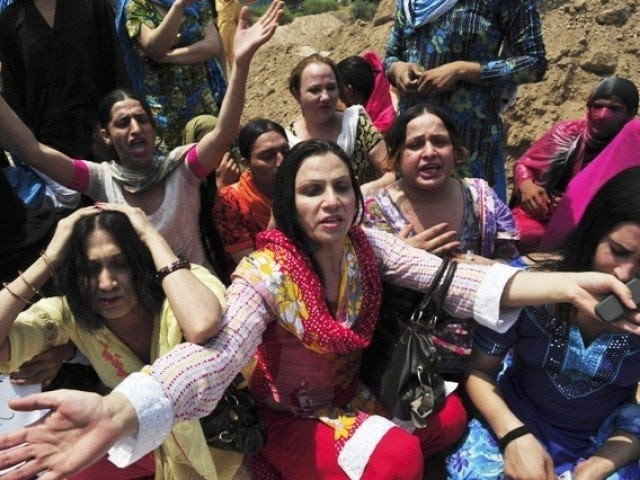Council of Islamic Ideology slams ‘guru culture’ in ‘intersex’ people
CII chairman says 'guru culture' is a lethal form of exploitation, neo-slavery, and against human rights

Council of Islamic Ideology (CII) Chairman Dr Qibla Ayaz on Sunday said there was a united stance that the ‘guru culture’ in the khawaja sira (non-binary gender) community was a lethal form of exploitation and neo-slavery.
In an interview, Dr Ayaz claimed that the ‘guru culture' was against human rights and it should not be part of any act or rules to be framed for non-binary gender people.
Besides urging the parents of non-binary gender children to take their ownership, Dr Ayaz proposed that the government should set up rehabilitation centres to bring these people in the mainstream of the social spectrum.
He said according to health experts, non-binary gender people could be operated upon at every stage of life including childhood, or after attaining the age of youth or adulthood, in the light of modern medical science, transforming them into normal and productive citizens of the society except in a few cases.
Shedding light on the ‘self-perceived identity’ in the perspective of Islam, he said it was contrary to the teachings of Shariah and it could be a source of many unexpected issues in the future.
Read more: Transgender person held for posing as mosque Imam in Rawalpindi
The provision of ‘self-perceived identity' must be abrogated from any act or rules, he added.
The CII chairman further pointed out that the word “transgender” was wrongly defined in the Transgender Persons (Rights of Protection) Rules, as it included those people who did not fall in their category.
He recommended that the word “intersex” must be used instead of “transgender” because it was the umbrella term for that particular segment of the society.
Dr Ayaz noted that by birth, non-binary gender people could analyse their physical status or it could be ascertained by their parents or a medical board but it could not be assumed on the basis of ‘self-perceived identity'.
To a query, Dr Ayaz made it clear that the CII was not consulted while enacting the Transgender Persons (Protection of Rights) Act, 2018.
He added that three amendment bills had been referred to the council, presented by Senator Mohsin Aziz, Senator Mushtaq Ahmed and Senator Maulana Abdul Ghafoor Haidari.
The CII had recommended that the amendments be incorporated in the law, he continued.
Dr Ayaz said after gathering input from all stakeholders, the council had reached the conclusion that certain rules were framed in continuation of the Transgender Act and contained several provisions and clauses that were not compatible with Shariah.
He also expressed concerns over the social and legal problems faced by intersex and transgender people.
Also read: CII terms self-perceived gender identity 'un-Islamic'
“The protection of intersex and transgender people and provision of their basic human rights to them should be ensured through all possible means at every nook and cranny of the country,” he added.
The council has been stressing the need for protecting the rights of the actual intersex people – generally meaning a person with ambiguous genitalia and also known as hermaphrodite.
The 2018 Act for transgender persons defined their gender identity and prohibited discrimination against them.
The law ensured issuing of certificate of identity to transgender persons and provided that no establishment shall discriminate against them in matters relating to employment, recruitment, promotion and other related issues.
It also provided for grievance redressal mechanism for the community in each establishment.
(With input from APP)



















COMMENTS
Comments are moderated and generally will be posted if they are on-topic and not abusive.
For more information, please see our Comments FAQ